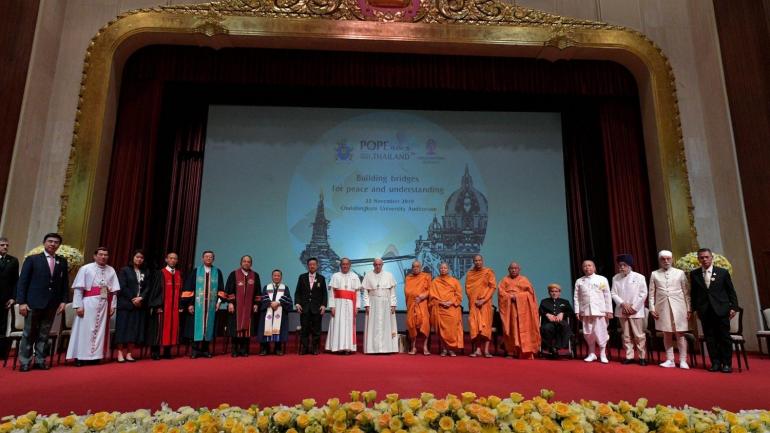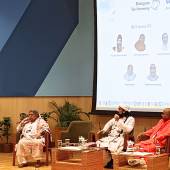'International Day of Human Fraternity'

"Fratelli tutti," the recent encyclical of Pope Francis on fraternity and social friendship, as well as the “Document on Human Fraternity,” signed by the pope and the grand imam of Al Azhar, have found a strong echo in the United Nations.
On December 21, the UN General Assembly adopted a resolution declaring February 4 as the International Day of Human Fraternity. The day is to be observed each year, beginning in 2021.
The Assembly invited the Member States, the United Nations system and others to observe the annual day in a manner they would each consider appropriate to promote inter-religious and intercultural dialogue.
The representative of the United Arab Emirates introduced the resolution on behalf of several countries, saying the move is a response to growing religious hatred amid the COVID‑19 pandemic.
The resolution expressed deep concern at acts that advocate religious hatred and thereby undermine the spirit of tolerance and respect for diversity. It noted that this is especially happening at a time when the world is faced with the unprecedented crisis of the pandemic, which requires a global response based on unity, solidarity and renewed multilateral cooperation.
The Assembly recognized the valuable contribution of people of all religions or beliefs to humanity and the contribution that dialogue among all religious groups can make towards improved awareness and understanding of the common values shared by all humankind.
It underscored the importance of raising awareness about different cultures and religions or beliefs. This includes education in the promotion of tolerance, which involves in the acceptance and respect for religious and cultural diversity and expression.
In this, regard, it stressed that that education, in particular at school, should contribute in a meaningful way to promoting tolerance and the elimination of discrimination based on religion or belief.
The General Assembly resolution acknowledged that tolerance, pluralistic tradition, mutual respect and the diversity of religions and beliefs promote human fraternity.
The resolution also underscored the importance of the contribution of religious leaders in this regard. It particularly noted the meeting between Pope Francis and the Grand Imam of Al-Azhar, Ahmad al-Tayyib, on February 4, 2019, in Abu Dhabi, which resulted in the signing of the document entitled, “Human Fraternity for World Peace and Living Together.”
That significant event in Christian-Muslim relations has been the inspiration for the date of the annual observance, February 4.
Judge Mohamed Mahmoud Abdel Salam, the former councillor of the Grand Imam of al-Azhar, regarded the adoption of the International Day of Human Fraternity as “a great historic achievement in the history of humanity”.
Salam, who is secretary-general of the Higher Committee for Human Fraternity that spearheaded the UN move, made history in October 2020 when he became the first Muslim to present a papal encyclical, Fratelli tutti, at the Vatican.
“This signifies the international acknowledgement of the joint efforts of the Grand Imam of Al Azhar and Pope Francis in fostering interfaith and intercultural dialogue,” Salam told the Jesuit magazine “America”, referring to the establishment of the international day.
Following the signing of the Document on Human Fraternity, the Higher Committee for Human Fraternity was established on August 20, 2019. It is composed of Christian, Muslim and Jewish members, including Vatican officials.
Committee members, including Cardinal Ayuso Guixot, the president of the Vatican’s Pontifical Council for Inter-religious Dialogue, and Salam, met UN Secretary-General António Guterres on December 4 2019, at the UN headquarters.
They presented the UN chief with a message from the Pope and the Grand Imam, proposing that February 4 be declared the World Day of Human Fraternity. The proposal was forwarded to the Assembly by the representative of the UAE. - Vatican Media
Radio Veritas Asia (RVA), a media platform of the Catholic Church, aims to share Christ. RVA started in 1969 as a continental Catholic radio station to serve Asian countries in their respective local language, thus earning the tag “the Voice of Asian Christianity.” Responding to the emerging context, RVA embraced media platforms to connect with the global Asian audience via its 21 language websites and various social media platforms.














